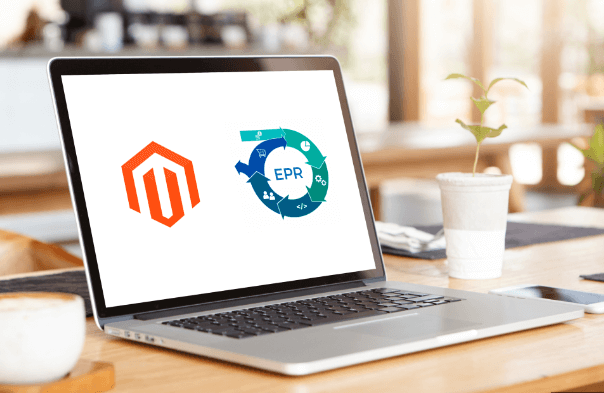Enhancing Business Efficiency with Magento ERP Integration

In today’s competitive digital landscape, businesses are increasingly relying on technology to streamline their operations and enhance customer satisfaction. One of the most effective ways to do this is by integrating an ERP (Enterprise Resource Planning) system with your e-commerce platform. Magento, a leading e-commerce platform, can be seamlessly connected with ERP solutions to create a unified system that improves business processes. This article explores how magento erp integration can drive operational efficiency and boost overall productivity.
1. What is Magento ERP Integration?
Magento ERP integration refers to the process of connecting the Magento e-commerce platform with an ERP system. ERP systems help businesses manage various functions such as inventory, finance, customer data and order processing. By integrating Magento with ERP, businesses can automate data exchanges between their online store and the back-office systems, eliminating manual processes and reducing errors. This ensures smoother workflows, better data accuracy and real-time updates across all departments.
See also: Predictive Analytics for Smarter Digital Wallet Transactions
2. Benefits of Integrating Magento ERP
The primary advantage of integrating Magento with ERP is the ability to centralize operations. With this integration, companies can automate key functions such as order management, inventory tracking, accounting and customer relationship management (CRM). The seamless flow of information ensures that there are no discrepancies between inventory levels, sales orders and accounting reports. This integration also leads to better decision-making, as the data from both systems is consolidated in real-time.
3. Streamlining Inventory Management with Magento ERP
Inventory management is a critical aspect of any e-commerce business. With Magento ERP integration, businesses can keep track of stock levels, automate reordering, and ensure that products are available when customers want them. The system will automatically update inventory quantities in real time, reducing the risk of stockouts or overstocking. This integration helps businesses maintain optimal inventory levels while reducing manual errors and improving customer satisfaction through accurate product availability.
4. Enhanced Order Processing and Fulfillment
Order processing is another key area where Magento ERP integration shines. When a customer places an order on a Magento-powered store, the details are automatically sent to the ERP system. The ERP handles the back-end logistics, such as checking inventory, generating invoices and processing shipments. This automated process accelerates order fulfillment, reduces delays and minimizes errors, ensuring that customers receive their orders promptly and in perfect condition.
5. Financial Management and Reporting
For any business, financial management is crucial. Magento ERP integration enables seamless synchronization between your e-commerce platform and accounting systems. This integration allows businesses to automate financial transactions, track revenue, generate invoices and reconcile accounts without manual intervention. Accurate and real-time financial data ensures better cash flow management, financial reporting and compliance with tax regulations.
6. Improving Customer Relationship Management (CRM)
Magento ERP integration also plays a vital role in enhancing customer relationship management. With all customer data housed in the ERP system, businesses can gain a 360-degree view of their customers’ purchasing behavior, preferences and interactions. This data can be used to create personalized marketing strategies, improve customer support, and offer tailored promotions. The result is improved customer loyalty, higher conversion rates and better customer retention.
7. Scalability and Flexibility for Growing Businesses
As businesses expand, they need a system that can scale with them. Magento ERP integration provides this scalability. With the integration in place, businesses can easily add new product lines, open additional stores or expand into new markets without having to manually manage each new process. The flexibility of both Magento and ERP systems ensures that businesses can customize workflows, manage multiple sales channels and adapt to changes in demand without a hitch.
8. Choosing the Right Magento ERP Solution
When considering Magento ERP integration, selecting the right ERP solution is essential for success. There are numerous ERP providers offering various features and functionalities, so it’s important to choose one that aligns with your business needs. Factors to consider include the size of your business, industry requirements, ease of use, integration capabilities and customer support. Popular ERP solutions for Magento integration include SAP, Microsoft Dynamics, Odoo and NetSuite, among others.
Conclusion
Integrating Magento ERP systems can significantly enhance business efficiency, streamline operations and drive growth. By automating key business processes such as inventory management, order fulfillment, financial tracking and customer relationship management, businesses can focus on what truly matters, delivering exceptional customer experiences and scaling operations effectively. The right Magento ERP solution can provide the tools necessary for long-term success in today’s dynamic e-commerce environment.





